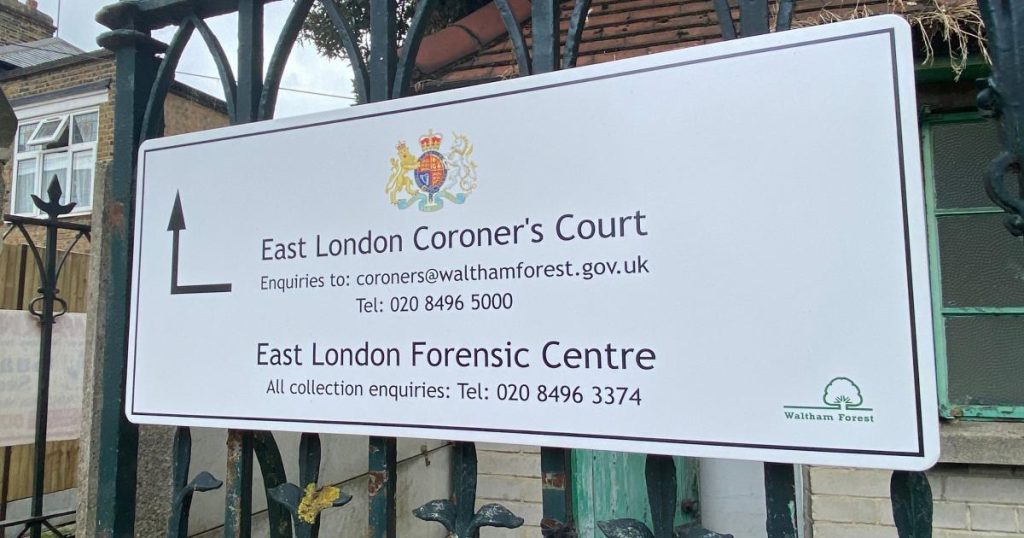Saffiyah Jubair, 19, was found collapsed on the floor of her home in Ardleigh Road on December 20.
Police deemed her death non-suspicious and it was referred to the East London Coroner’s Court in Walthamstow.
Coroner Nadia Persaud opened an inquest on Wednesday, January 8.
Coroner’s officer Jean Smyth told the court Miss Jubair “presented at Whipps Cross Hospital emergency department with internal ingestion of a toxic substance on the 19th of December”.
“She was found on the floor at 9am and London Ambulance Service were called immediately,” Mrs Smyth continued.
Upon arrival at the hospital, Miss Jubair was intubated by the intensive care team due to an “impending airway obstruction” – swelling of the throat that makes it harder to breathe.
Despite hospital treatment, her blood pressure gradually slowed and she died at 11.59pm the following day.
After police referred the case to the coroner, a post-mortem examination was ordered.
A pathologist gave Miss Jubair’s cause of death as multi-organ failure caused by ingestion of a toxic chemical.
“I’m satisfied on those facts this death occurred in circumstances requiring an inquest,” said Mrs Persaud.
Inquests are held in the public interest to investigate the causes of unnatural deaths and whether future similar deaths may be avoidable.
She said Miss Jubair’s family should be given the legal status of “interested persons”, entitling them to scrutinise evidence before the inquest and question any witnesses called to give evidence.
She asked that the family also provide a background statement giving “details about Saffiyah in life, details about family structure, her work or study, her health – both physical and mental health – and if they have any concerns surrounding her death, details of those concerns.”
From the Metropolitan Police Service, Mrs Persaud ordered statements from the officers who attended the scene and deemed Miss Jubair’s death non-suspicious.
From her GP, the coroner ordered details of all recent consultations and whether she had received any mental health treatment in the six months preceding her death.
“If she was under the care of the mental health services, I would like a report from the consultant setting out an overview of her care,” Mrs Persaud added.
“If she had a care coordinator, I would like a statement of the care coordinator.”
The inquest was provisionally listed for July 14.
When life is difficult, the Samaritans is available 365 days, 24/7. Call for free on 116 123, email jo@samaritans.org, or visit www.samaritans.org.



